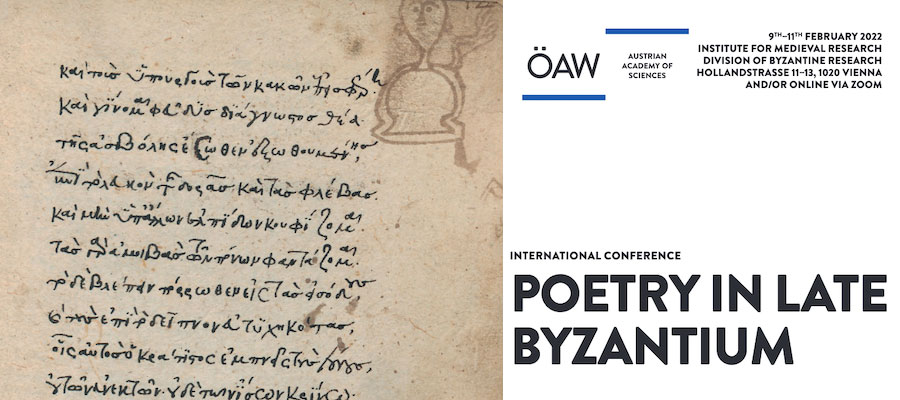Poetry in Late Byzantium, Austrian Academy of Sciences and Zoom, February 9–11, 2022
The composition and consumption of poetry was fundamental for the cultural life of the Byzantines, from the beginning of the Empire until its end in the middle of the 15th century. In the schools, poetry was omnipresent both as an object of study (such as that of Homer, the tragedians, and Gregory of Nazianzus, as well as of more contemporary authors, e.g. Michael Psellos or Theodore Prodromos), and as a teaching method (didactic poems, metrical schede). Epigrams were omnipresent in Constantinople and elsewhere, inscribed on the surfaces of churches and towers, icons, and portable objects, as well as in many other places and settings. Members of the upper class regularly gathered in literary salons, the so-called theatra, where rhetorical texts were read in both prose and verse. Moreover, beyond its undoubted aesthetic value, the writing and patronage of poetry could have a significant impact on the social standing of authors and patrons alike. While these aspects have recently been studied for the poetry produced from late antiquity up to the twelfth century, the poetic production of the late Byzantine period (13th to 15th c.) has been largely neglected. This conference will, for the first time, shed light on the corpus of late Byzantine poetry in its entirety.
This conference is organized within the framework of the project “Late Byzantine Poetry (from the Fourth Crusade until the End of the Empire” (T1045 – G25) funded by the Austrian Science Fund FWF.
Organizer: Dr. Krystina Kubina (Austrian Academy of Sciences)
Pre-registration is mandatory for online participation.
